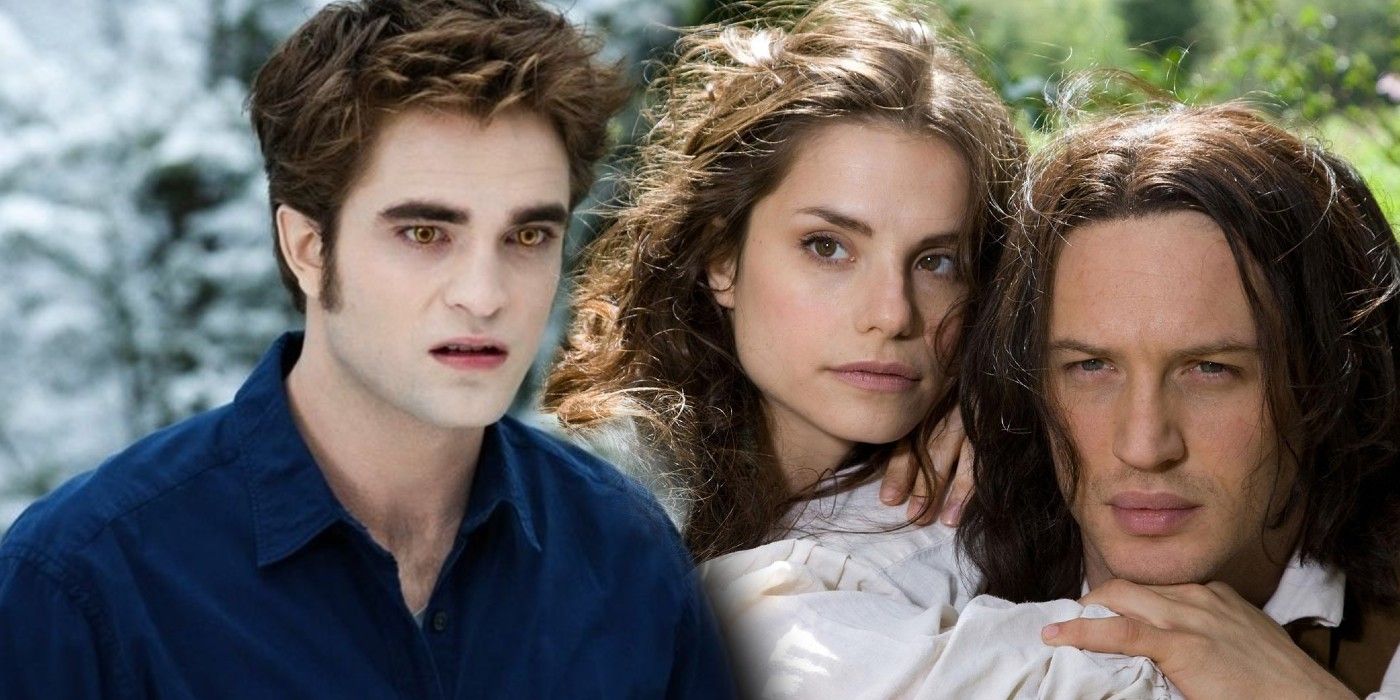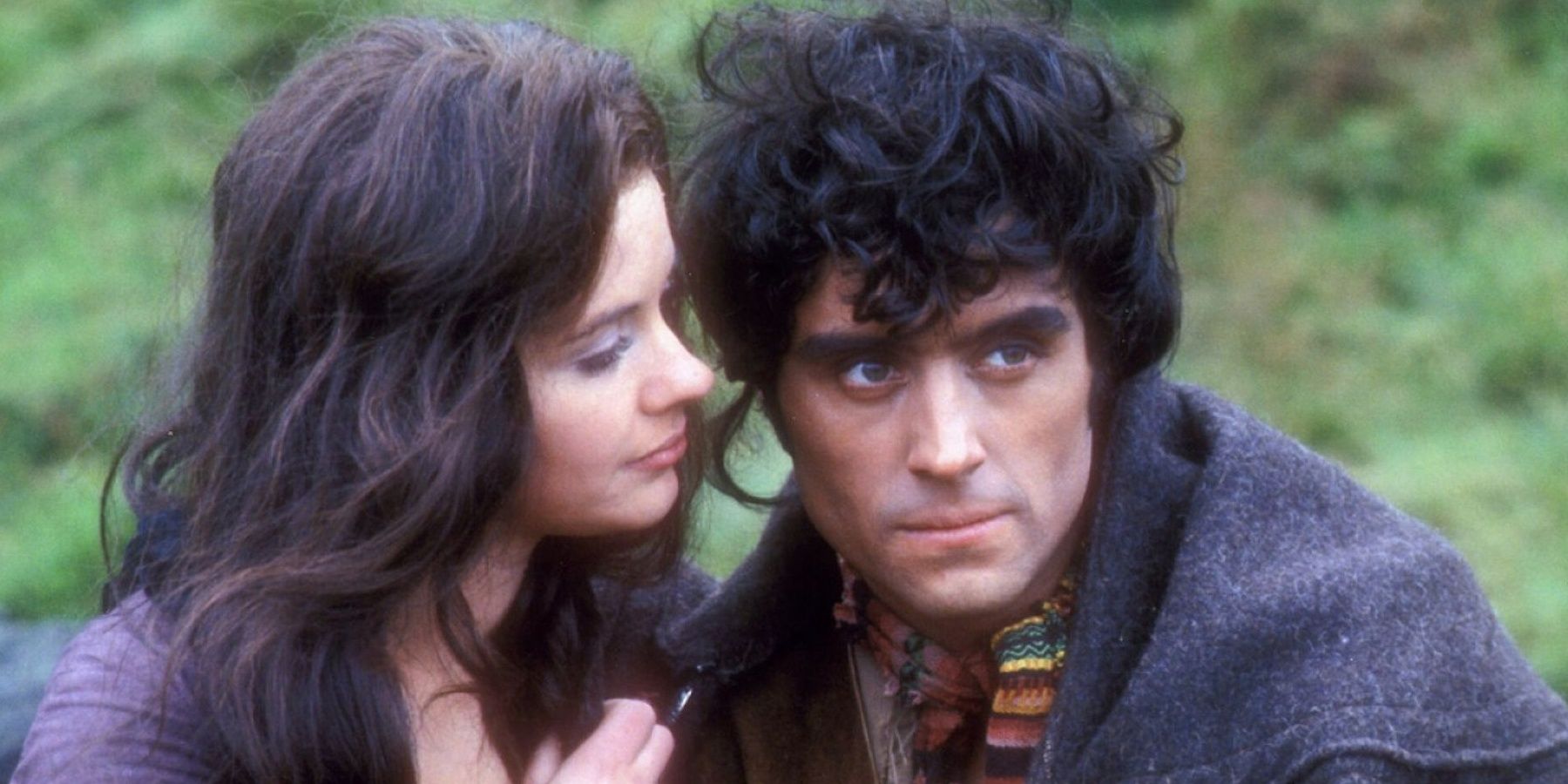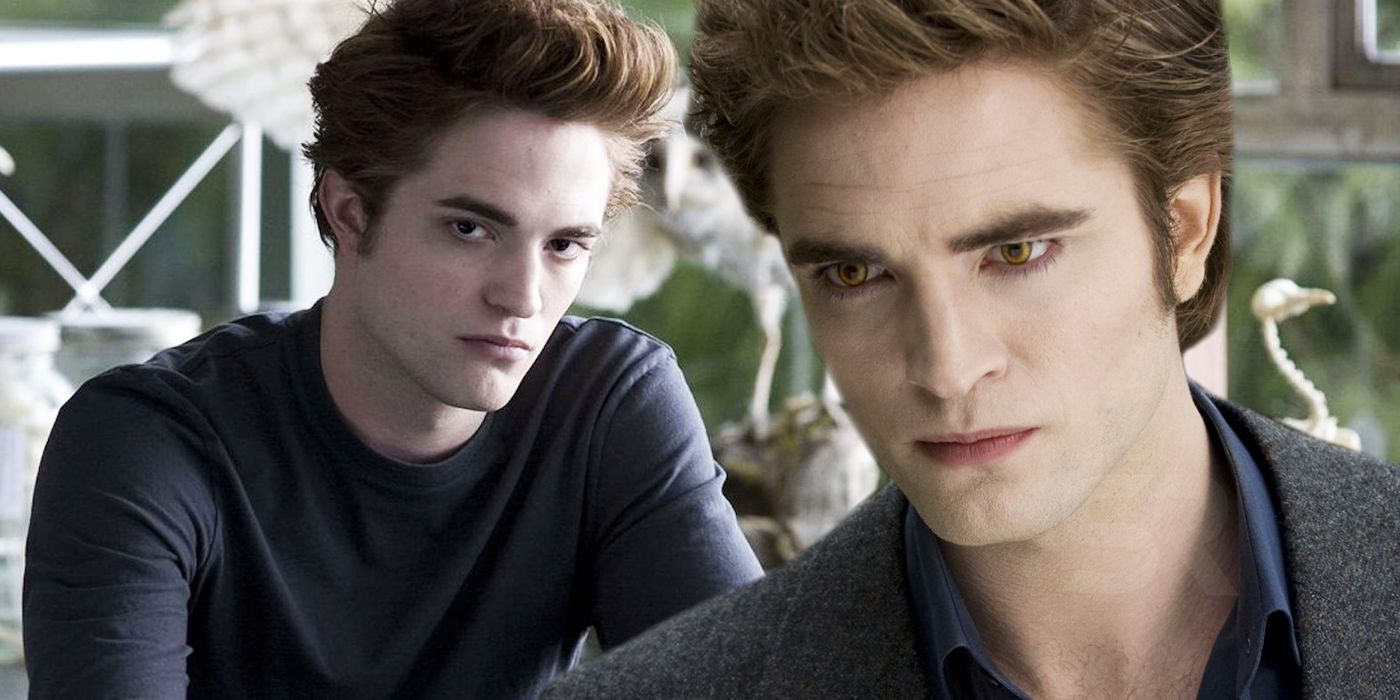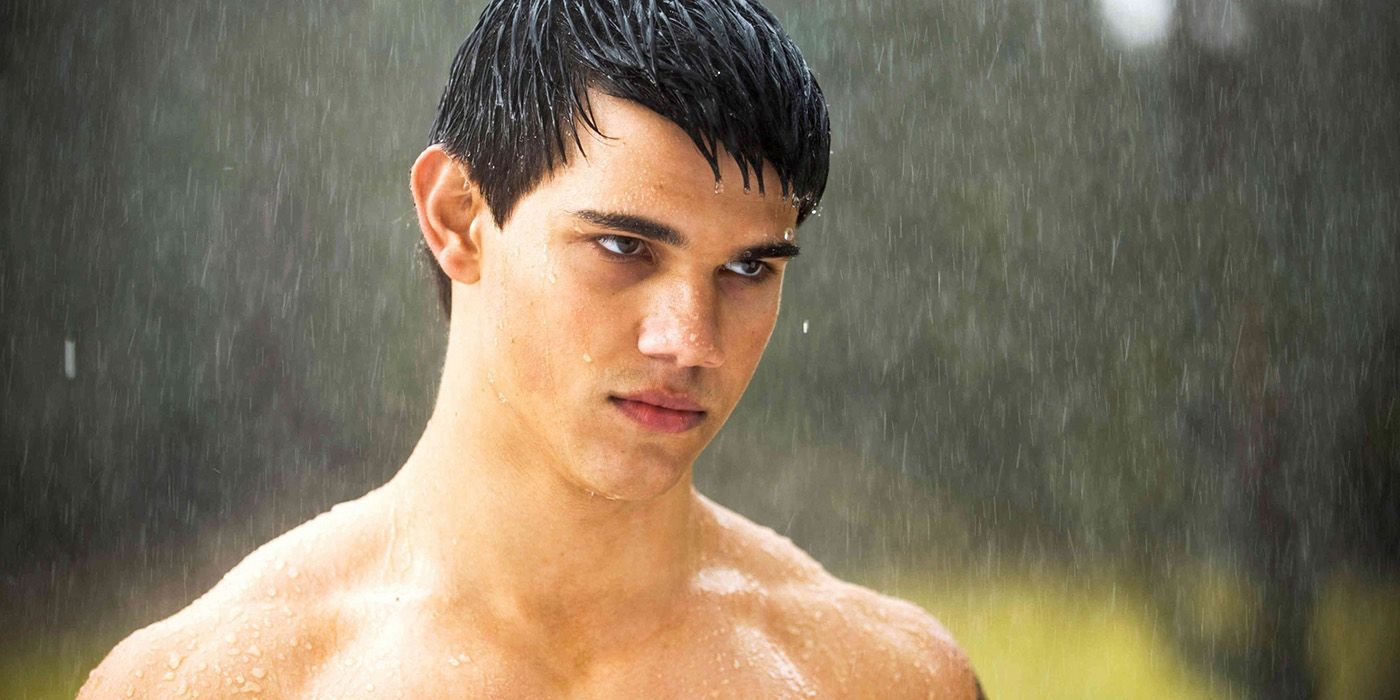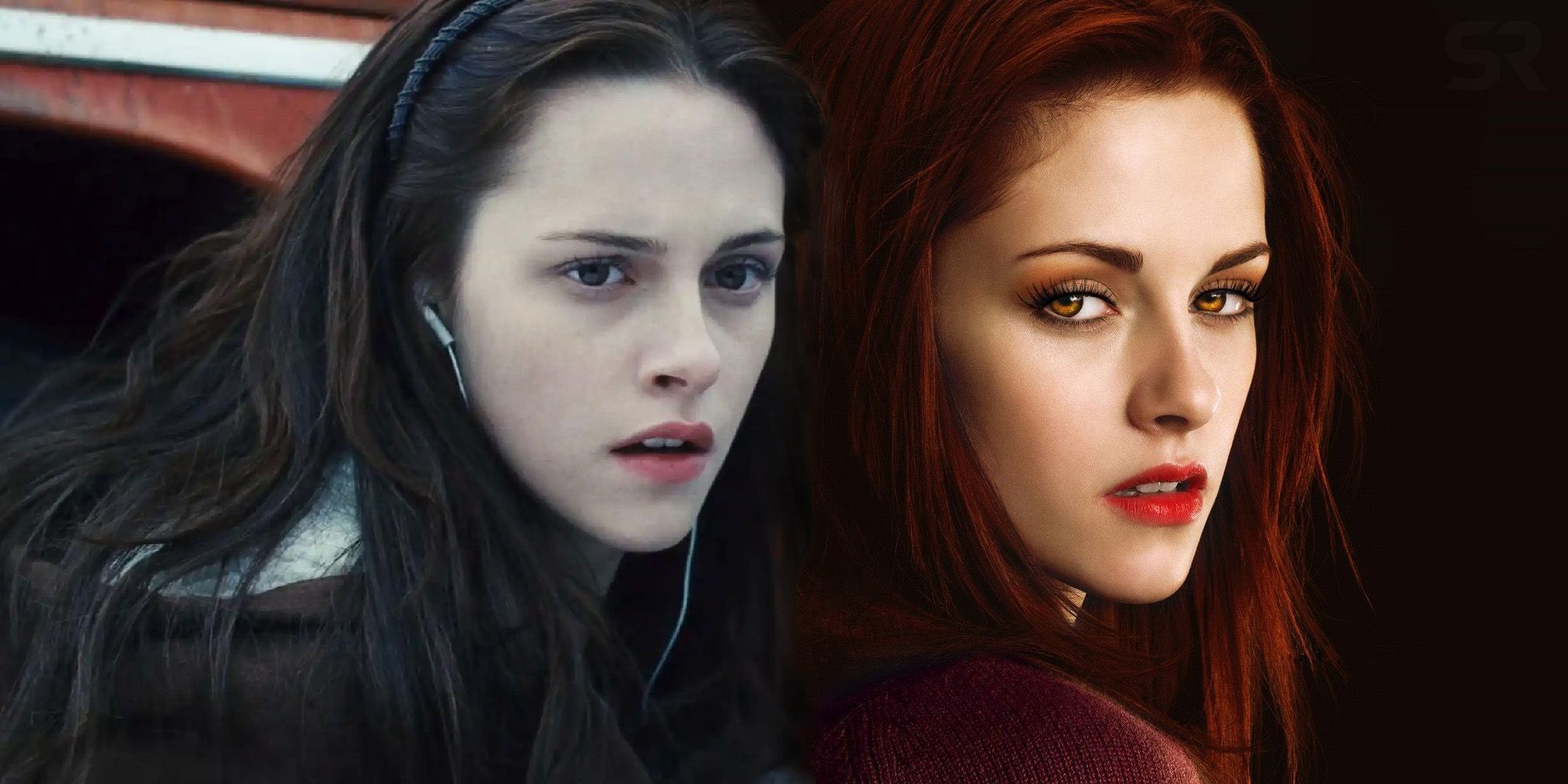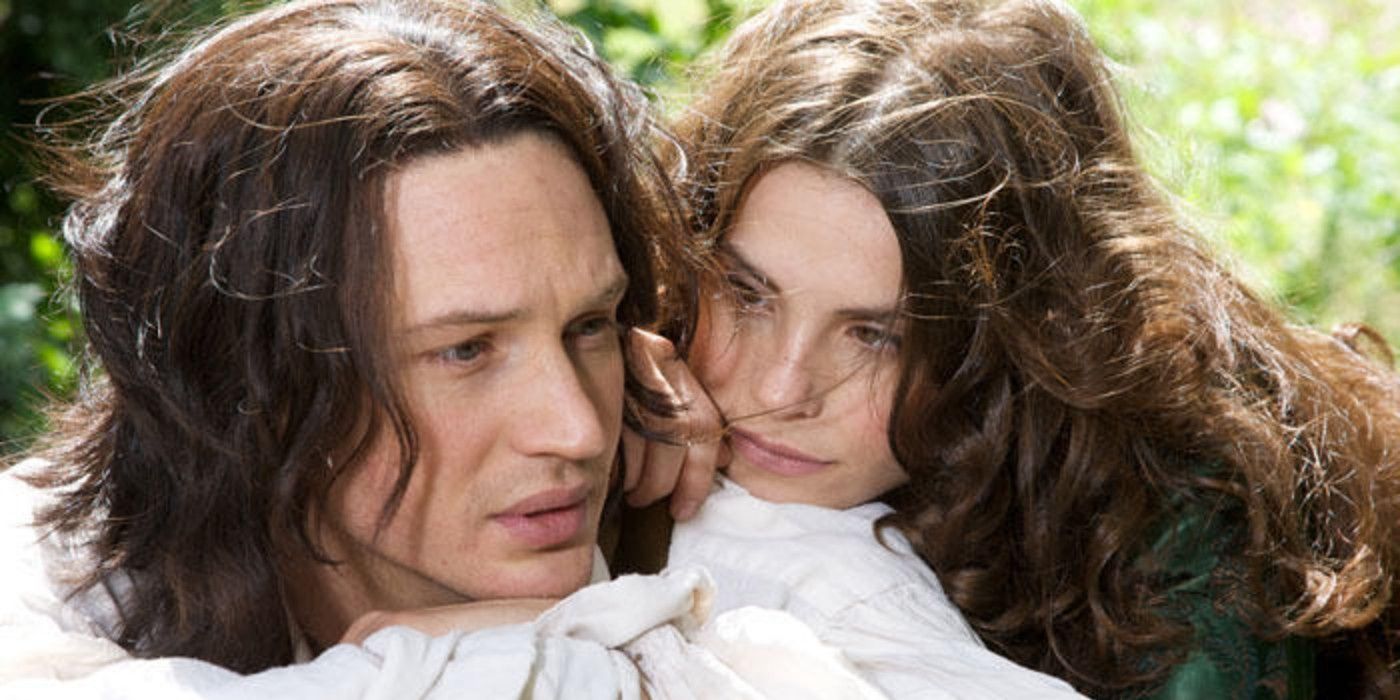Twilight’s author, Stephenie Meyer, has said her third novel (and subsequent movie adaptation) in the series, Eclipse, was inspired by Emily Bronte’s Wuthering Heights. But what are the similarities and differences between the two? Released in 2008, Twilight was the first in a series of blockbuster adaptations of author Stephenie Meyer’s bestselling young adult paranormal romance series of the same name.
Starring Kristen Stewart and Robert Pattinson as Edward Cullen and Bella Swan, Twilight was met with mixed reviews upon release. However, the pair’s melodramatic love story soon won the hearts of millions of young fans, and the series was a massive financial success. Original Twilight director Catherine Hardwicke left the series after the first film, and the sequel’s reviews were even more middling than the first entry. Still, the franchise continued to do big business at the box office nonetheless.
Much of what made Twilight resonate with its sizable fanbase was the classic love triangle at the center of the series. For some time in the late ‘00s, the question of whether one was "Team Jacob" or "Team Edward" was one film fans and readers alike found hard to ignore as the series ballooned in immense popularity. Much of Twilight’s archetypical storytelling was borrowed from classic sources, with author Stephenie Meyer admitting that the first book in the series was based on Pride and Prejudice, the second owed its inspiration to Romeo and Juliet, and the last was effectively a mashup of A Midsummer Night’s Dream and The Merchant of Venice. The author also said that she based the third book in the series, Eclipse, on Emily Bronte’s classic romantic tragedy Wuthering Heights, but what are the similarities and differences between the legendary novel and Meyer’s remix?
Wuthering Heights In Twilight
Referred to as Bella’s favorite book throughout the series, Wuthering Heights was quoted numerous times during Eclipse and was seen in her room throughout the movies. The frequent mentions of the novel in both the book series and movie adaptations led Bronte’s classic to return to the bestseller lists at the height of Twilight’s popularity. Stephenie Meyer clearly drew inspiration from Heathcliff and Edgar in writing Bella’s two potential paramours, but the Twilight cast does diverge from Bronte’s characters in some important ways.
Edward As Heathcliff
Although Edward admitted he couldn’t see why Bella loved the novel so much, he did say that he saw more of himself than he wanted to in Heathcliff. It’s easy to see why, as both are romantic antiheroes whose overwhelming passion for the object of their affections drove them to the brink of madness. However, the colder Edward was lucky enough to survive this and get the girl, where Heathcliff’s end was a lot more tragic. Heathcliff was also portrayed as a more morally ambiguous figure, a tragic and tortured character who did nonetheless commit some truly heinous acts like the savage murder of an innocent animal. On the contrary, the more cut-and-dried classic hero Edward was a vampire who doesn’t even drink blood, like all the Cullens.
Jacob As Edgar
Despite being the more outwardly passionate of the pair, the fact that Jacob prized his small-town upbringing and wanted to be a stable, “normal” support to Bella made him more of a match for Edgar Linton of Wuthering Heights. Unlike Edgar, he didn't get the girl, but he also ended up on civil terms with Edward, which can’t be said of Heathcliff and Edgar. He was the character who shared the least traits in common with his book counterpart, with Edgar being a representation of everything prim and proper in English society. In fact, at times, Jacob’s character acted more like Heathcliff, but this may be more due to the problematic depiction of Quileute people as hard-living macho men than any Bronte inspiration. Ultimately, the fact that he truly thought Bella would be better off living a more normal, socially acceptable life even if it left her hopelessly depressed was Jacob’s most important commonality with Edgar.
Bella As Cathy
Finally, the closest character match comes in the form of Bella Swan as Cathy, with everything from her indecisiveness to her overblown passion being lifted from the Wuthering Heights antiheroine. However, before Bella’s eventual Breaking Dawn vampire transformation, the character was criticized for being too passive among a cast whose other characters were more proactive (something that inspired the gender-flipped Twilight rewrite Life and Death sought to address). This was far from true of Cathy, and admittedly, it's hard to deny that Stewart’s heroine was nowhere near as fiery as Bronte’s character. However, Bella was also far less self-destructive as a result and survived the story thanks to her ability to disengage, where Cathy had never met a fight she didn’t want a part in. Despite their differences, the distraught that both characters suffered due to their shared fate of being madly in love with someone who they cannot be with was the defining characteristic that ties the two together.
Where Eclipse and Wuthering Heights Differ
The basic character dynamics seen in Eclipse will be familiar to fans of Bronte’s novel, albeit with each character’s defining traits toned down. For example, Jacob was less of a doormat than Edgar, and Edward was less unhinged than the troubled Heathcliff. However, the plot of Meyer’s story and the subsequent underrated Eclipse movie adaptation diverged wildly from Bronte’s story. The story of Wuthering Heights tracked the misfortunes of Edgar and Heathcliff’s offspring after Cathy’s early death, with the pair’s feud bleeding into the next generation and eventually being resolved after their respective deaths. In contrast, Eclipse featured a propulsive plotline about both the main franchise villains the Volturi, and a young upstart vampire army converging in Forks for a bloody battle.
The ensuing fight saw Jacob’s tribe side with the Cullen clan for the first time and set up the events of Breaking Dawn, thus minimizing the amount of screen time spent on Edward/Jacob/Bella’s love triangle. Essentially, where Bronte’s novel put the tortured lovers front and center throughout its story and explored the impact of their actions on the next generation, Eclipse brought back the original Twilight villain Victoria and sidelined the competing lovers' subplot. It was ironic, given how much media attention was lavished on the “Jacob or Edward” feud, to realize how little attention the third Twilight novel and movie devotes to this plot, and it was the biggest difference between Meyers’ Eclipse and her classic inspiration Wuthering Heights.

